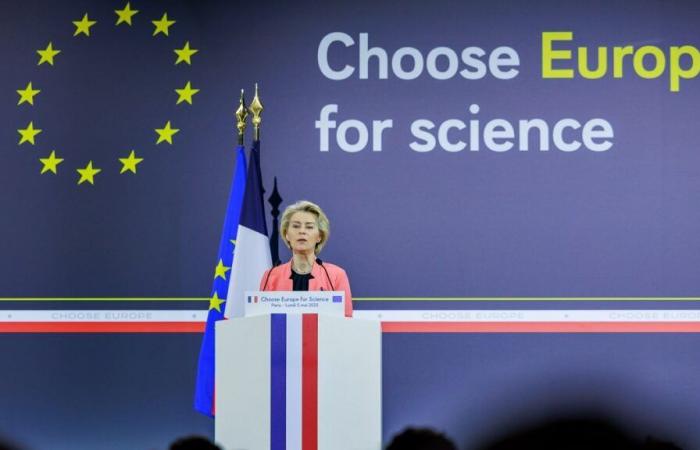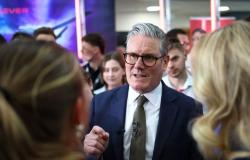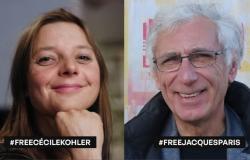
Ursula von der Leyen invited American scientists threatened by Donald Trump’s policy to settle in the European Union, promising them greater financial incentives, longer contracts, less bureaucracy and guaranteed freedom of research.
“More than ever, we must defend science. A universal science, shared by all of humanity, and unifying”said the president of the European Commission on Monday in a speech delivered at the University of the Sorbonne, in Paris.
“We all agree to say that science has no passport, no sex, no ethnicity or political party”, she said.
“We believe that diversity is an asset for humanity and the engine of science. It is one of the most precious world goods and it must be protected”, she added.
Ursula von der Leyen did not mention the name of Donald Trump and his spokesman said later that the speech did not focus on “The way science is managed in other countries”.
However, its many references to the importance of a “free and open” research left no doubt about its ultimate objective: to transform American chaos into an opportunity for Europe.
Since his return to the White House, Donald Trump has cuts into the federal budget that has deprived scientific agencies, research institutes and medical centers of billions of dollars in subsidies, jeopardizing their ability to support crucial studies that require reliable and regular funding. Climate change programs, cancer, Alzheimer’s disease and HIV prevention have already been affected.
In a new request, the American billionaire asked Congress to reduce the expenses of 37 % for the National Health Institutes (NIH) and by more than 50 % for the National Science Foundation (NSF), a measure which, according to the government, aims to “refocus investments” in priority fields, such as AI, quantum energy and nuclear energy, and ” fanciful “.
These policies have come up against a certain resistance and have turned upset decades of bipartisan consensus, triggering warnings according to which federal reductions are so important that they could jeopardize the ability of the United States to compete with other leading economies.
A recent study by the American University estimated that a 25 % drop in R&D public spending would reduce the country’s GDP of a “comparable amount” with the drop recorded during the great recession.
At the same time, Donald Trump launched a campaign against elite universities in order to dismantle their diversity programsthreatening to reduce federal funding and modify their tax regimes.
“Unfortunately, the role of science in today’s world is questioned. Investment in basic, free and open research is questioned”, said Ursula von der Leyen in Paris.
“What a gigantic calculation error!”
The President of the Commission then unveiled a new initiative, called “Choose Europe”, aimed at attracting scientists and researchers living in the United States and other countries to Europe.
In this context, Brussels will endeavor to reduce bureaucratic charges, to facilitate access to venture capital and to offer more long-term contracts as well as higher allowances. In addition, the EU will set up a seven -year “super grant” and add a financial “supplement” to the allowance of those who choose to settle elsewhere.
Freedom of scientific research will be included in the law, added Ursula von der Leyen.
The plan will be based on existing research programs, mainly Horizon Europe, with 93 billion euros, and will include a new envelope of 500 million euros for the period 2025-2027.
“The first priority is to ensure that science in Europe remains open and free. This is our business card”he declared Ursula from Leyen.
“We have to do everything in our power to defend it – today more than ever”, she added.
The French President Emmanuel Macronwhich expressed itself immediately after the president of the commission, was much more explicit in his conviction.
“No one could have imagined, a few years ago, that one of the greatest democracies in the world would suppress research programs on the pretext that there was the word diversity in this program”said Emmanuel Macron.
“No one could think that this very great democracy in the world, whose economic model is so strongly based on the freedom of science and innovation (…) was going to make such an error. But we are there.”
“No one could think that this very great democracy in the world, whose economic model is so strongly based on free science, on innovation (…) was going to make such an error. But we are there.”
The French leader rejected any “diktat” which would allow governments to impose on scientists what they can or cannot do in terms of research. He cited two specific areas – women’s health and climate action – that the Trump administration has targeted.
“These are also lives that are involved”, he said. “It is the progress of our humanity that is called into question. It is a moral and human imperative”.







